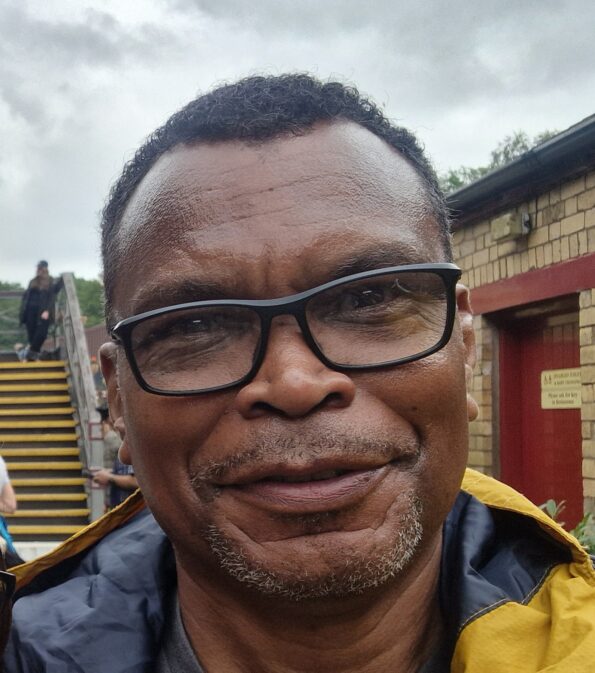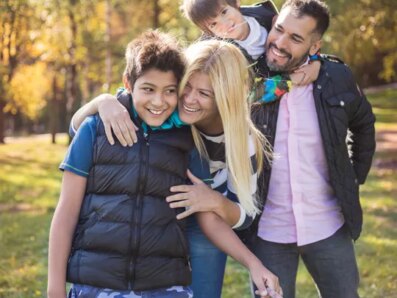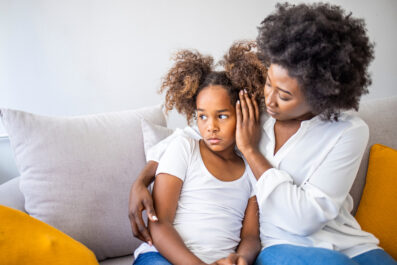Whether they leave at 18, reunite with their family or leave your home unplanned, saying goodbye to a foster child is something that every foster parent will experience at some point on their journey.
But how do you cope when a child leaves? We spoke to one of our foster parents, James, to find out. Join us as he shares the story of his first goodbye, including how he managed, what he learned, and his advice for new foster parents on how to prepare for a foster child leaving.
The end of an era: James’s experience of saying ‘goodbye’
James and his family have been fostering children on a long-term basis for more than ten years. Last year, they said their first goodbye to a child who had lived with them for 13 years.
Although fostering arrangements typically end when a child turns 18, James’s young person continued to live in their home through the ‘staying put’ scheme until he was 21. This type of arrangement helps young people build a stronger foundation and become better prepared for independent living before they take that step.
We asked James some questions about his experience of saying goodbye, and we hope it will help foster parents who are navigating, or are worried about navigating, this transition.

Can you tell us about your first goodbye?
“The first time that I had to say goodbye to a foster child was only a year ago. He came to live with us when he was eight, and stayed with us until he was 21, so he grew up with us. When he turned 18, he went to university before deciding that it wasn’t for him. At the age of 21, he got his own apartment and became fully independent. Now, he is part-owner of his own business.”
“We are still very much in touch with him, and he is always present at our family events, like Christmas and get-togethers. I am very proud of him and what he has accomplished, and how he has progressed and grown from a child to a wonderful young man.”
How did you prepare him to leave your home?
“It’s very important to prepare a child for leaving home. In the case of a long-term arrangement such as mine, I made sure that as the child grew older, our plans for him were always clear and explained.”
“We discussed the option to ‘stay put’ after he turned 18 and ensured he understood that during this period, we would be preparing him to eventually move into independent living. I also reassured him that he would be fully supported and that he wouldn’t have to leave until he felt capable and ready to do so.”
“If you foster a younger child and they’re moving to a different foster home, I think it’s important to explain the reasons and benefits of their move. I’d also reassure them that it’s in their best interests and that we’re still here for them if they need us.”
How did you feel when he left?
“It was quite emotional when he left home for the last time, but everyone felt a strong sense of pride and achievement in him. He was proud to be moving into his own place and felt confident knowing that we were all still here for him, and that he could call on us whenever he wished.”
“When a child leaves, there are lots of different emotions involved:
- Pride: When a young person has lived with us long-term, I can see how far they’ve come since the day they arrived. I feel proud that I have helped them grow into a well-rounded and confident adult.
- Anxiety: Even though I know they’re ready for the big, wide world, there is always a bit of anxiety around them leaving, just as I felt when one of my birth children left the home.
- Missing them: I miss talking to them and seeing them around. As soon as they have left, there seems to be something missing from the home, and this can last for a while.
- Happiness: Above all, I feel happy knowing that the child has made progress and achieved so much during their time with us.”
How did saying goodbye impact your family?
“The rest of my family coped with saying goodbye in the same way that I did. They knew he would still remain a part of our family and that they would see him again.”
“I think it could be more difficult for both adults and children to say goodbye if the child’s younger when they leave. You would need to explain to your children the reasons why the child is moving on and reassure them that it is the right thing for the child at the time.”
“The great thing is that the ISP team are always there to support every child in the foster home and the foster parents.”
How did you manage your feelings while supporting him?
“When my first child left, it was difficult for me to hide my emotions. I made sure we supported him in every way possible and reassured him that he was still part of our family and welcome to visit any time.”
“We didn’t hide our emotions, and I think that’s important because it shows the young person how much they mean to you, especially as he had been part of our family for 13 years. He was ready to move on at the age of twenty-one, which I believe made things a little easier for all of us.”
Do you think goodbyes get any easier?
“I think goodbyes will always be very emotional, no matter how long a child has been living with you or how many times you’ve said goodbye to children you’ve cared for. You get very attached to them; they become part of the family.”
“When I have to say my next goodbye, I think my emotions will be the same: pride, anxiety, missing them, but also happiness in knowing that they have progressed to a place where they are confident to live independently.”
What have you learned from your first goodbye?
“Goodbyes are a lot more difficult and emotional than I ever thought they would be. When you’ve fostered a child for a long time, they become part of your family. They may be calling you ‘Mum’ or ‘Dad’ and referring to your own children as their siblings. When they leave, it feels the same as it does when your own children leave home.
“When I started fostering, I was told that I would get attached to the children, but I only really understood what this meant once we welcomed a child into our home.”
What advice would you give new foster parents on saying goodbye?
“My advice to new foster carers preparing for a child’s departure would be:
- Reassure the young person that everything happening is in their best interests.
- As your young person grows older, make sure they are fully aware of and understand the long-term plan for their future.
- Let them know that you will still be there for them to talk to, and possibly see, if they need you.
- Emphasise that moving on will only happen when they feel ready and capable.
- Make sure they know they’ll have the support they need.
- Prepare yourself emotionally, as you may experience similar feelings to those you would have if your own child were leaving home.”
How did ISP support you with the goodbye?
“Support from ISP and our social worker really helped the whole family with the transition. They provided practical and emotional support, and we knew we could always turn to them for advice and guidance.”
Worried about goodbyes? Here are James’s thoughts
“To someone worried about goodbyes, I would say to remember that, ideally, when you foster a child, you’re helping them to overcome challenges they may have faced, such as trauma, and supporting them to grow into well-rounded and confident children and adults.”
“They become part of your family, and just as with your birth children, you’re preparing them for the day when they can move independently into the wider world.”
“So, when the time comes to say goodbye, be proud that you have played a part in helping a young person reach a stage where they’re ready to live independently. And if they’re not yet at that age or level, take comfort in knowing that you’ve contributed to their positive development, and that moving to a different home is what is best for them at that time.”
We’re here to support you
Whether you foster long-term or short-term, at ISP, we understand how difficult saying goodbye to a child can feel. That’s why, as part of our support for foster parents, we help your whole family manage the transition.
We also work hard to prevent unplanned endings by carefully matching children with the right foster families and providing a therapeutic foster parent training programme. This not only equips you with the skills and knowledge to care for children living with trauma but also helps you prepare them for independent living.
Through our network of fostering professionals, including social workers, teachers and therapists, our support for children in foster care helps them develop life skills, make the most of their education, and heal from their past experiences.
Start your fostering journey today
Ready to become a foster parent? Call us on 0800 0857 989 or submit an enquiry form and we’ll be in touch to tell you more about therapeutic foster care.






